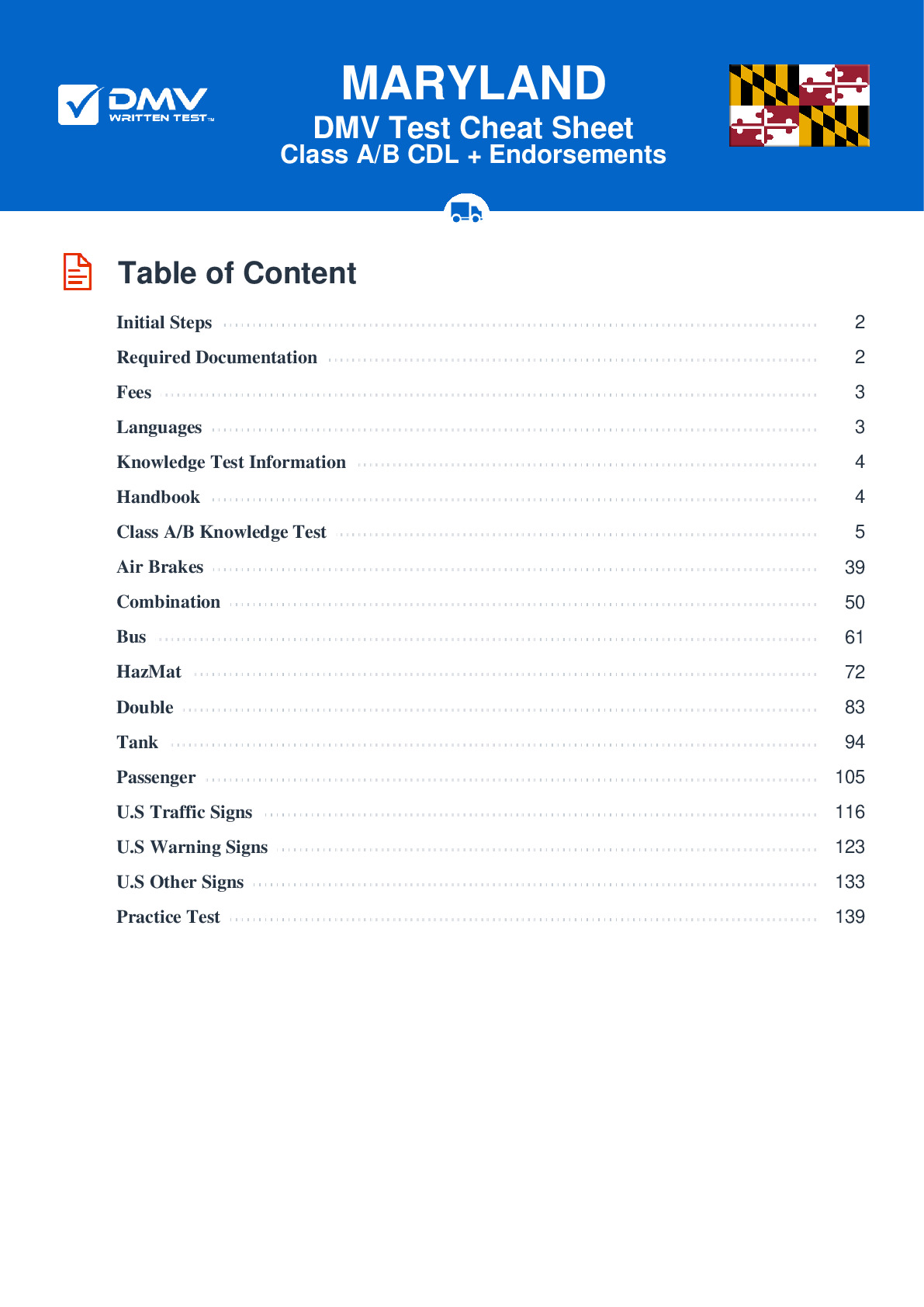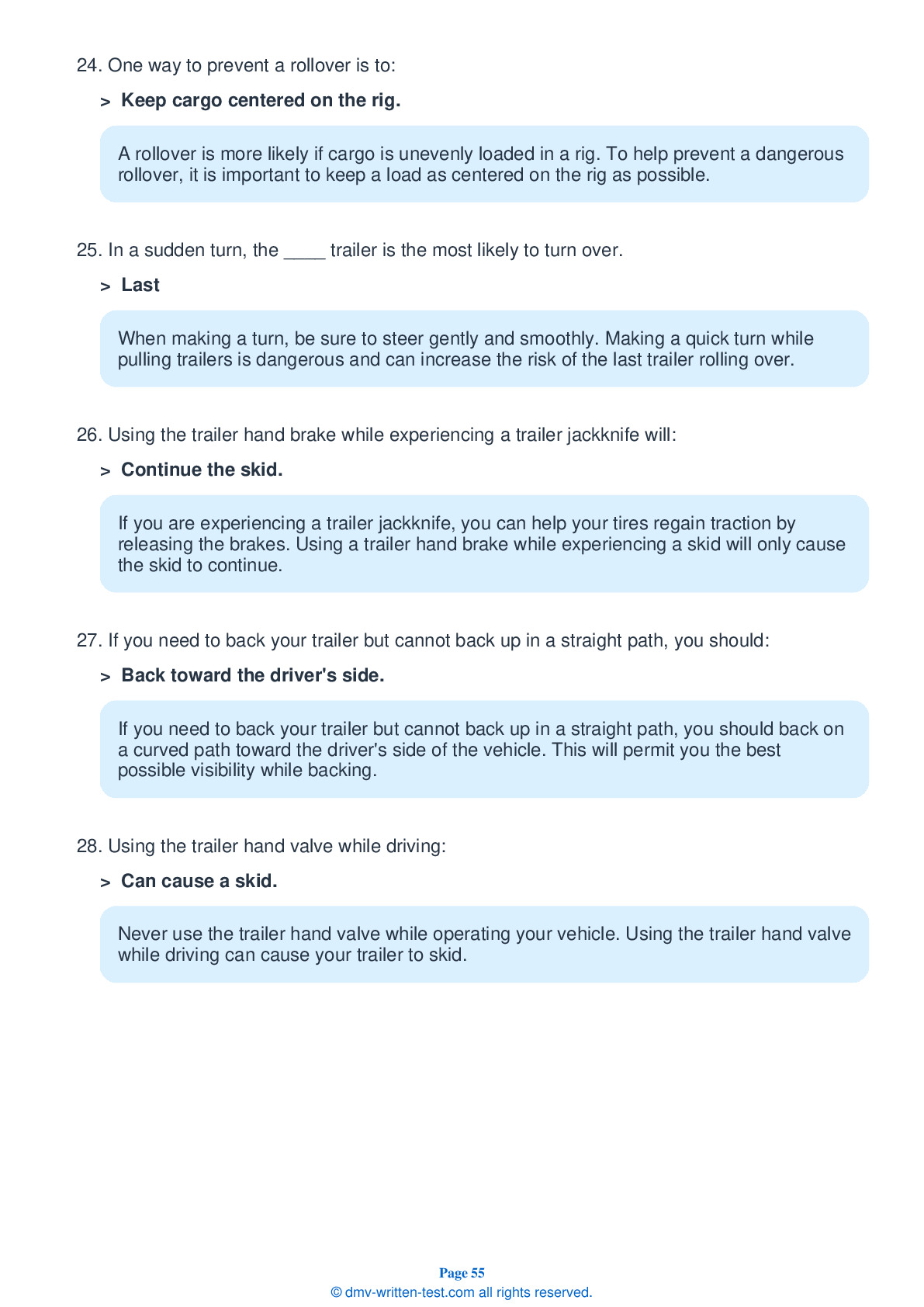Air Brakes
This endorsement is required for driving a vehicle with air brakes. To receive this endorsement, applicants must pass a written test. The test consists of 25 multiple choice questions. Each question has three or four answer choices. To pass, the applicant must answer at least 20 questions correctly. Test questions come from the Maryland Commercial Driver Guide. Questions come from the chapter covering: Air Brakes. The Air Brakes endorsement may be used with the Class A, B or C CDL.
Number of Question
Passing Score
13. If one air system in a dual air brake system is very low on pressure:
Explanation
In a dual air brake system, if one of the air systems gets very low on pressure, either the front or rear brakes will not be operating fully. You should bring your vehicle to a safe stop and have the air system repaired.
14. An air compressor governor will stop the compressor from pumping air once the air tanks have an air pressure level of:
Explanation
An air compressor governor will stop the compressor from pumping air once the air tanks are at an air pressure level of 125 psi. This air pressure level is referred to as the "cut-out" level.
15. When you need to stop in an emergency, you should:
Explanation
If you need to make an emergency stop, you can use either the controlled braking method or the stab braking method. It's important to brake in a way that keeps your vehicle traveling in a straight line while still allowing you to turn, if necessary.
16. During a static leakage test, what is the maximum leakage rate that is safe for a double combination vehicle?
Explanation
When performing a static leakage test on a double combination vehicle with air brakes, the leakage rate should be no more than 3 psi in one minute. If the air leaks from the air brake system at a quicker rate, the vehicle should not be driven because something likely needs to be repaired.
17. Spring brakes come on:
Explanation
Spring brakes come on automatically when air pressure drops to an unsafe psi level. Instead of waiting for the spring brakes to automatically activate, you should safely exit the road as soon as you notice the low pressure warning signal and bring your vehicle to a stop while you are still able to control the brakes.
18. Brake fade is a result of:
Explanation




